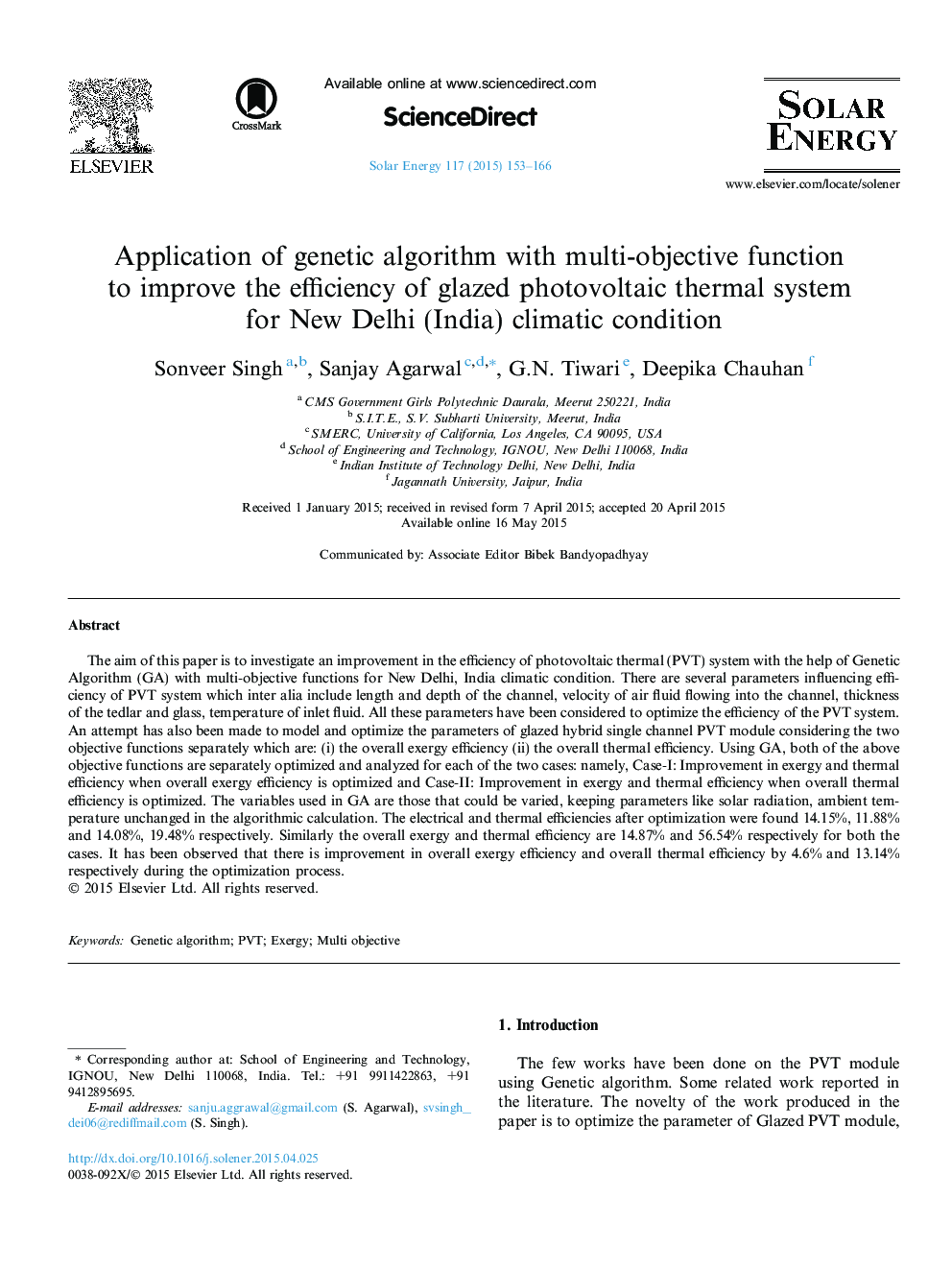| Article ID | Journal | Published Year | Pages | File Type |
|---|---|---|---|---|
| 1549691 | Solar Energy | 2015 | 14 Pages |
•Multi objective function using genetic algorithms.•GAs are very efficient technique.•Improvement in exergy.•Fitness function has been defined.
The aim of this paper is to investigate an improvement in the efficiency of photovoltaic thermal (PVT) system with the help of Genetic Algorithm (GA) with multi-objective functions for New Delhi, India climatic condition. There are several parameters influencing efficiency of PVT system which inter alia include length and depth of the channel, velocity of air fluid flowing into the channel, thickness of the tedlar and glass, temperature of inlet fluid. All these parameters have been considered to optimize the efficiency of the PVT system. An attempt has also been made to model and optimize the parameters of glazed hybrid single channel PVT module considering the two objective functions separately which are: (i) the overall exergy efficiency (ii) the overall thermal efficiency. Using GA, both of the above objective functions are separately optimized and analyzed for each of the two cases: namely, Case-I: Improvement in exergy and thermal efficiency when overall exergy efficiency is optimized and Case-II: Improvement in exergy and thermal efficiency when overall thermal efficiency is optimized. The variables used in GA are those that could be varied, keeping parameters like solar radiation, ambient temperature unchanged in the algorithmic calculation. The electrical and thermal efficiencies after optimization were found 14.15%, 11.88% and 14.08%, 19.48% respectively. Similarly the overall exergy and thermal efficiency are 14.87% and 56.54% respectively for both the cases. It has been observed that there is improvement in overall exergy efficiency and overall thermal efficiency by 4.6% and 13.14% respectively during the optimization process.
